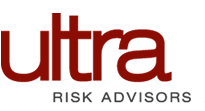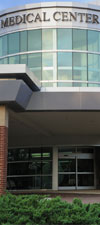One of the most important components of a risk management program is access to real time advice on how to handle complex situations, adverse events, and disclosure while an issue unfolds. The goals is to manage the outcome before it becomes a claim. NSU Healthcare’s third party risk management consulting firm, OmniSure, brings experience, sound judgment, and proven strategies to loss prevention in an emerging risk situation.
Here is one of many common stories, in which a policy holder used OmniSure’s risk management helpline during of a crucial moment, thereby preventing a claim and possibly other negative outcomes.
A married mother of two in her mid-forties came to a hospital’s outpatient surgery center for a breast biopsy. A lump had been identified during a routine exam. All of the rigorous pre-operative protocols were followed and after the procedure in the OR, the lump was excised. She was taken to the post-op area and her recovery was uneventful. However, somehow, the excised lesion never made it to pathology. The investigation that followed concluded that the specimen was likely discarded inadvertently during the turnover of the OR suite between cases.
The surgeon discovered the event prior to the patient’s post-op appointment with him. He contacted the hospital’s risk manager and demanded she draft a letter to the patient outlining the mistake with a clear explanation of the error – that also exonerated him from any responsibility. He wanted the letter hand delivered to his office.
The risk manager reached out to OmniSure for assistance. Together, the risk manager and OmniSure’s risk management specialist mapped out a plan for honest, empathetic and transparent disclosure. The surgeon was contacted and an alternative to a letter was proposed: Allow the risk manager to attend the follow up visit. Together, they could explain the situation and present the findings of the hospital investigation. The patient’s questions and concerns could be addressed without judgment, defensiveness or blame.
The Risk Management Perspective:
As we create and modify safer systems and implement just culture throughout healthcare, we will ultimately improve outcomes and support critical thinking. Patients and their families deserve to know the truth. Patients can also enhance improvements and quality by being encouraged to share their experiences, perspectives and knowledge regarding their interactions within the health system. This is a great, untapped resource that has historically been avoided due to fear of being sued. However, we have learned even if settlement does occur after an event, the costs – both financially and emotionally – are often much less than defending a lawsuit.
OmniSure’s specialist briefed the risk manager with practical disclosure discussion guidance to ensure the conversation unfolded in the best possible way:
- Sit down but do not sit behind a desk.
- Ensure privacy.
- Inspire a sincere and open conversation.
- Express honest sympathy and regret.
- Include only the known facts.
- Give the patient and family adequate time to speak and to ask questions.
- Try to stay in the moment. Do not anticipate questions or reactions. This diminishes effective communication.
- Consider having a scribe to document the process. (A scribe’s only role is to document. They would normally sit in the background. This allows the person or persons responsible for the disclosure to focus on the discussion without distractions. Also, it can appear quite defensive when the person conducting the disclosure is constantly pausing to write notes.)
During the disclosure, the surgeon relayed that he was nearly 100% certain that the lump excised was a benign lipoma. The risk manager and the surgeon together explained that, even though the lesion looked benign, hospital policy dictates all specimens removed during surgery are sent to pathology. However, in this case, the specimen did not make it to pathology. The risks and options were outlined in detail. Initially, the patient was angry and fearful. The risk manager and the surgeon allowed her to express her frustration. The risk manager provided the patient with her phone and pager number, explaining that as she continued to think about this situation, she may have further questions or comments. A sincere apology was made.
Later, the patient did call the risk manager several times. Initially, the calls involved venting her anger and fear. The risk manager called her at one point to check up on her. Eventually, in this case, the patient accepted the facts of the situation as being unchangeable. She remained upset, but was able, in the long run, to express gratitude for the honesty of the hospital and the surgeon.
Because the risk manager took advantage of the risk management support provided by her insurance partner, by calling OmniSure instead of writing a letter as requested by the doctor, a patient was treated with dignity and respect, a claim was avoided and, the hospital’s excellent reputation remains intact.
About NSU Healthcare:
NSU Healthcare specializes in the Medical Professional Liability, General Liability and Umbrella/Excess insurance needs of the healthcare industry. We have made a specialty of hospitals, medical facilities – including imaging, physician groups and non-standard physicians. NSU healthcare offers top quality markets, comprehensive coverage, fast indications and competitive rates.
As a program administrator, we support broker relationships, working with brokers to provide industry leading coverages and operational efficiencies. Since 1995, brokers across the country have counted on NSU for industry expertise as well as friendly, responsive service.
National Specialty Underwriters, Inc.
10900 NE 4th Street, Suite 1100
Bellevue, WA 98004
www.ultrariskadvisors.com
1.425.450.1090 x5050







COMMENTS
No comments yet. You should be kind and add one!
The comments are closed.